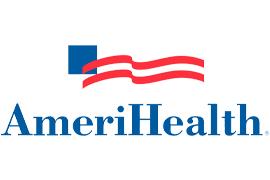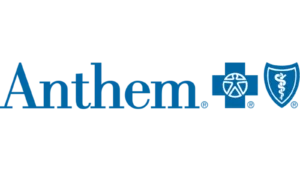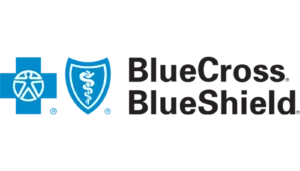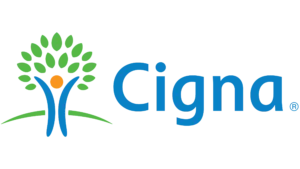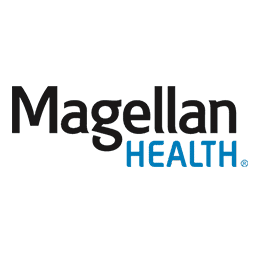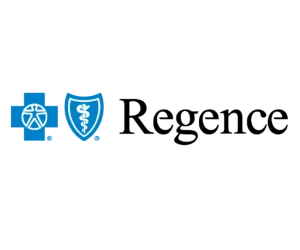At Full of Life Recovery Center in Marlton, NJ, we believe that lasting recovery involves more than just treating symptoms—it requires healing the whole person. Our holistic therapy program is designed to support individuals on every level: mind, body, and spirit. Whether you’re recovering from addiction, trauma, or a co-occurring mental health disorder, our approach provides tools for physical well-being, emotional balance, and spiritual growth. By combining traditional clinical care with holistic practices like mindfulness, yoga, nutrition, and creative therapies, we help clients reconnect with themselves and build a more grounded, purposeful life.
Our experienced team understands that no two recovery journeys are alike, which is why holistic therapy at Full of Life is personalized to meet each individual’s unique needs. These therapies complement evidence-based treatments such as cognitive behavioral therapy (CBT) and trauma-informed care, creating a well-rounded path to wellness. Through this comprehensive model, clients learn to manage stress, improve emotional resilience, and cultivate healthier habits that support long-term recovery. In our Marlton facility, holistic therapy isn’t just an add-on—it’s a vital part of our mission to help individuals heal deeply and live fully.
What Is Holistic Therapy?
While the mind and body are often treated as distinct, they are deeply interconnected—constantly influencing one another in complex ways. Scientific research, published on the National Library of Medicine, continues to show that our physical health, daily habits, and behaviors directly impact our emotional and mental well-being. Likewise, mental states such as chronic stress, anxiety, or depression can lead to real physiological effects, including inflammation, fatigue, and weakened immune response. This mind-body connection is at the core of integrative health. In addition to these two dimensions, a person’s spiritual health—which reflects their sense of meaning, purpose, and connection to life—also plays a vital role in overall wellness and resilience. When any one of these elements is neglected, the whole person can suffer.
To achieve true, sustainable healing, it is essential to address the mind, body, and spirit together—this is the foundation of holistic therapy. Holistic therapy is an approach that goes beyond treating surface-level symptoms or isolated conditions. Instead, it seeks to restore balance and harmony across all areas of a person’s life. This form of care is used to support individuals coping with a wide range of challenges, including addiction, trauma, anxiety, depression, chronic pain, and more. It incorporates both traditional therapeutic techniques and complementary practices such as yoga, mindfulness, nutritional counseling, energy work, art therapy, and body-based treatments like massage or acupuncture.
Unlike conventional models that may focus solely on medical or psychological symptoms, holistic therapy views each person as a whole, dynamic being. It recognizes that emotional healing, physical health, and spiritual fulfillment are all interconnected and necessary for long-term wellness. By addressing lifestyle habits, thought patterns, physical health, and internal beliefs simultaneously, holistic therapy empowers individuals to take an active role in their recovery. At its core, this approach fosters self-awareness, personal growth, and a deeper sense of purpose—supporting not just symptom relief, but transformation from within.
How Holistic Therapy is Used Within Mental Health & Addiction Treatment
Holistic therapies are an increasingly important component of modern addiction treatment, offering a comprehensive approach that goes beyond symptom management to address the full scope of a person’s well-being. Rather than focusing solely on the physical aspects of addiction, holistic treatment integrates mind-body-spirit healing by including practices that promote emotional balance, self-awareness, and inner peace. Many addiction recovery programs now incorporate holistic elements such as art therapy, yoga, outdoor recreation, and spiritual development to enhance the overall effectiveness of care and support long-term recovery.
These integrative programs typically combine evidence-based treatments—like medication-assisted therapy and cognitive behavioral therapy (CBT)—with holistic modalities such as meditation, mindfulness, and movement therapies. This combined approach allows providers to meet the diverse and layered needs of individuals recovering from substance use. By treating the psychological, emotional, physical, social, and spiritual components of addiction, holistic care fosters a deeper, more sustainable healing experience. Personalizing these therapies to the individual’s background and goals ensures that the care plan is both meaningful and impactful.
Common Holistic Therapies Used in Drug Rehab:
-
Mindfulness Practices: Techniques such as guided meditation, deep breathing, and body scanning help clients manage stress, reduce cravings, and regulate difficult emotions—especially those that were previously numbed by substance use.
-
Yoga: This body-centered practice blends movement, breathwork, and relaxation to reduce anxiety, restore physical health, and improve mental clarity. It also serves as a powerful grounding tool during early recovery.
-
Expressive Therapies: Art therapy, dance movement therapy, and music therapy allow individuals to process complex emotions nonverbally, offering a creative and therapeutic outlet for healing.
-
Recreational Activities: Engaging in activities like nature walks, kayaking, gardening, or team sports can lift mood, boost physical health, and teach clients how to find enjoyment in sober living.
When thoughtfully integrated into a treatment plan, these holistic therapies not only support sobriety but help individuals rediscover purpose, joy, and a renewed sense of self.

Is Holistic Therapy An Effective Treatment for Substance Abuse Disorders?
Holistic therapy can be an effective adjunct to traditional substance use disorder treatment, though it works best when used in combination with evidence-based methods. Research supports that integrating mind-body-spirit approaches into addiction care enhances outcomes across multiple dimensions—such as treatment retention, mental well-being, and quality of life.
First, holistic therapies like mindfulness, meditation, yoga, and expressive arts can significantly reduce relapse risk. A meta-analysis of mindfulness-based relapse prevention (MBRP) found it to be more effective than standard relapse prevention at decreasing heavy drinking and drug use. Another study highlighted that mindfulness training improved awareness of triggers and provided better self-regulation—supporting longer-term sobriety. Similarly, yoga-based interventions have been shown to lessen psychological distress and reduce craving intensity, making it easier to resist relapse.
Holistic rehabilitation programs also help improve overall well-being and treatment retention. A controlled trial in Indonesia showed that participants in a 10-week holistic and medical rehab program experienced significant improvements across physical, psychological, social, and environmental domains (p < 0.001). Additionally, inpatient holistic treatment has been linked to better psychosocial outcomes and higher program completion rates compared to standard care. By addressing broader lifestyle factors—such as stress, nutrition, exercise, and creative expression—holistic approaches create a more supportive environment conducive to sustained recovery.
In short, holistic therapies are not standalone solutions, but valuable enhancements to traditional addiction treatment. When properly implemented into into a comprehensive, personalized plan—including clinical counseling, medication-assisted treatment, and relapse prevention—holistic modalities can meaningfully strengthen recovery and enrich quality of life for individuals in recovery.
Full Of Life’s Approach To Holistic Therapy In NJ
At Full of Life Recovery Center in Marlton, NJ, we take a deeply integrated approach to addiction treatment—one that goes beyond just addressing the physical symptoms of substance use. Our holistic therapy programs are designed to support healing in every area of a person’s life: mind, body, and spirit. We understand that addiction often stems from a combination of emotional wounds, stress, trauma, and environmental factors, which is why we combine evidence-based clinical care with holistic, wellness-focused interventions that promote total well-being.
Our holistic therapies are incorporated into each client’s individualized treatment plan and may include mindfulness and meditation, yoga, nutritional counseling, art and music therapy, and movement-based practices like tai chi or breathwork. These approaches help clients regulate their nervous systems, reduce stress, and reconnect with themselves in meaningful ways. We also emphasize spiritual and emotional renewal—whether through guided self-reflection, grounding exercises, or spiritual counseling—to help clients rebuild a sense of purpose and clarity in their recovery journey.
What makes our holistic therapy approach unique is the way we blend it with traditional clinical methods. Our staff is fully trained in both evidence-based treatments—such as Cognitive Behavioral Therapy (CBT), Medication-Assisted Treatment (MAT), and trauma-informed care—and complementary therapies that support sustainable recovery. This balance ensures that each client’s care plan is robust, comprehensive, and tailored to their unique needs and personal recovery goals.
At Full of Life, we view each client as a whole person, not just a diagnosis. Our holistic drug rehab in Marlton, NJ is built on the belief that true healing requires more than sobriety—it requires restoration of self. By supporting physical wellness, emotional resilience, and spiritual growth, we empower our clients to leave treatment not only sober but also grounded, empowered, and ready to live a full and meaningful life.
Find Peace & Healing Through Holistic Therapy In Marlton, NJ Today
If you or your loved one is looking for holistic therapy in NJ for addiction, then Full Of Life can help. Our team of admissions coordinators is here to get you to the best program that will meet all of your needs. We know that getting help can feel both scary and overwhelming. Thus, we will do all the heavy lifting for you. The only thing you need to do is give us a call or fill out a simple online form. From there, we can get all the information needed to get you the help that will begin your recovery journey. Contact our admissions team today to learn more.



